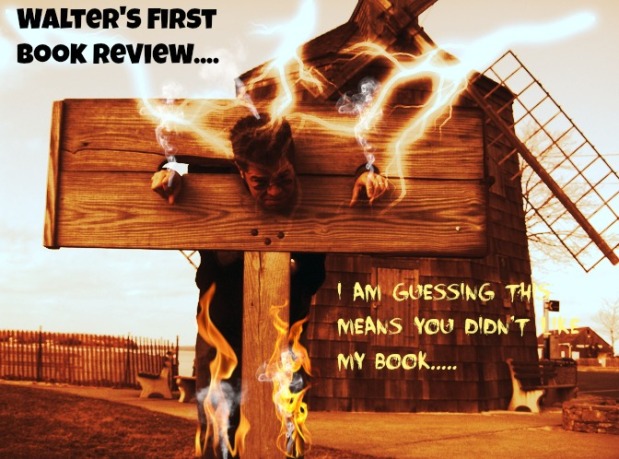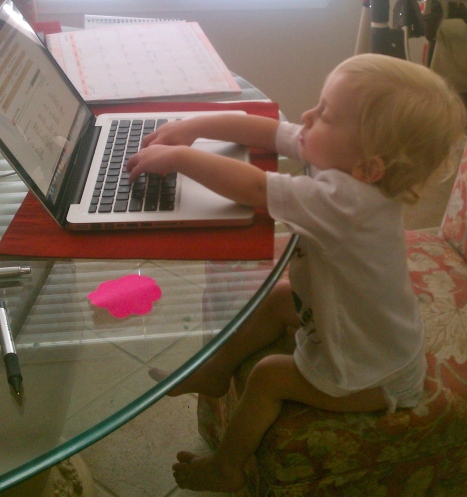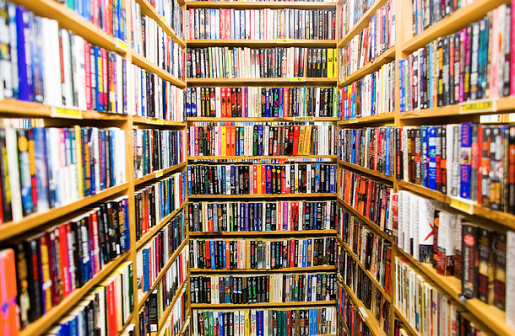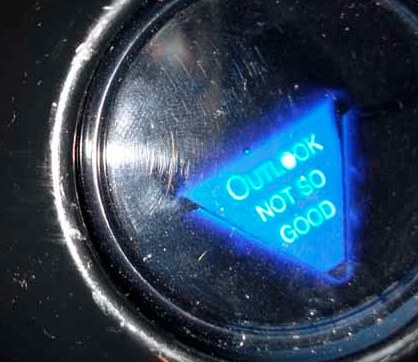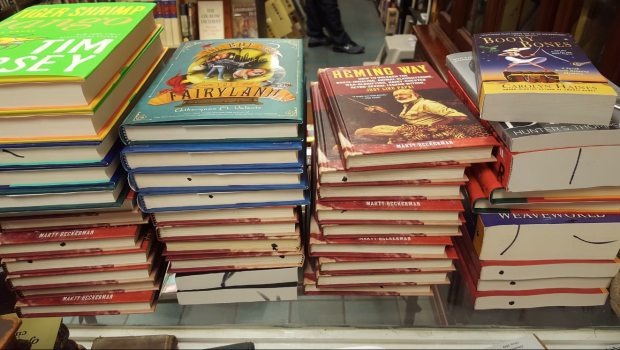Posts Tagged bookstores
Consumer Power, Author Responsibility & Why Book Reviews MATTER
Posted by Author Kristen Lamb in Publishing on January 4, 2016
We’ve had an eventful week or so with my last couple of unplanned posts. In all fairness, I did expect to get some knickers in a twist (which I did) with my post Pay the Writer. As a quick recap, I love used bookstores. They get a lot more of my money than I like to admit *looks up number to 12 Step Sponsor*
You don’t understand. Half Price Books has books ZEN DOODLES. No frigging idea what those are…just that I need some.
I’m not against “discovering” an author there.
But writers? If we promote used bookstores, make sure to remind readers you don’t get paid that way. Discovery must serve a purpose. Exposure must have the follow-up to be effective.
Because if you don’t ever make any money, you have to go work retail. If you work retail, one day you will be asked one too many stupid questions. When you’re asked one too many stupid questions you snap. When you snap, you lose your job. When you lose your job, you can’t face your spouse. When you can’t face your spouse, you sell drugs for the cartel. When you sell drugs for the cartel, you get involved in a gunfight.
Don’t get involved in a gunfight for the cartel. Encourage readers to buy new if they LIKED it.
Readers, if you find a book you LOVE at that church thrift sale for 50 cents? ROCK ON! If you want MORE books like it? Try to buy new. That’s how capitalism works.
When no one buys new? Well go peruse pictures of Cuba.
By the way, if we buy NEW, the used bookstores make MONEY when we sell those suckers to fund our addiction. So anyone who is foolish enough to think that me encouraging people to buy new books is going to undermine the used book franchise doesn’t remember what used bookstores sell.
The Truth About Samples
Yes, I get that the used book is a sample. Just like at Costco they give out samples of pizza bites. But if no one ever BUYS pizza bites and instead use Pizza Bite Lady as a free buffet?
Pizza bites go away and tofurkey bites take their place and then the terrorists win.
*runs away from vegan friends*
That was the only point to the post that seemed to cause so much offense. Yes Mr. Konrath, I get NO ONE OWES the Pizza Bite Company writer anything, but still nothing wrong with the Pizza Bite Company writer asking for the sale.
When the Pizza Bite Company asks for a sale after we’ve laid waste to the sample table like an Old Testament plague? They’re selling not whining.
Nothing dirty about it when pizza bites sell stuff. Nothing dirty when writers sell stuff either 😉 .
Today we’re going to talk about reviews, because I do think that was the big shocker from my last post. I believe most folks have come to mistakenly assume that reviews are kind of this “extra” nicety that isn’t directly relevant to the author beyond ego and that’s patently false especially in the digital age where we writers live and die by algorithms.
Yes, in the digital age, our biggest challenge is discoverability. The defenders of the used bookstore have an excellent point. Obscurity=DEATH. That IS true. But I still say, discoverability means nothing to writers (or any business) without an eventual sale…somewhere.
And for those of you who are on that limited budget who inhale books by the dozen? You have no idea how much power you wield to truly help the writers you love but hopefully you are about to find out.
***Note I said the writers you love. Not ALL writerKIND. Just because I write a book does not entitle me to any review beyond what I EARN.
Why Reviews Are So Essential
Sheer Visibility
We’re all spoiled by Web 2.0 which is a user-generated web that is the offspring of the implosion of the doc.coms in the early 2000s. If you recall the 90s, web content was static. Content was mostly generated by sweaty geeks living in their grandmother’s basement (Okay, I was in a guest room). Anything Internet-related might as well have been Sanskrit for the average person.
Now? Everyone contributes to the web including my sidekick Odin the Ridiculously Handsome Cat.
This is part of what makes the Internet so damn addictive and fun. Everyone contributes. But, with all this content, the web is a BIG place and it’s very dynamic.
Search engines use algorithms to keep everything organized. Algorithms in turn rely on certain favorable behaviors.
I teach this in my book Rise of the Machines—Human Authors in a Digital World. You want a website that gets more traffic? Blog off it! Want a blog that gets more traffic? Do the stuff search engines love. One thing search engines LOVE?
Fresh content.
Would you want a Coke that had been sitting out for days? It’s stagnant, flat…got floaties? Guess what? You and search engines have a lot in common. You like fresh stuff. So do search engines.
This is why regular reviews are very important. If my book hasn’t been reviewed on Amazon since 2013? Algorithms will figure my content is best ignored unless someone actively hunts for that molded cup of forgotten Coca Cola my book.
When a book is reviewed, however, Amazon (or Goodreads or wherever we review because they use the same basic programming) perks to life. Because any site that sells or recommends books wants to help guide customers to good/new content, it’s obviously going to favor the “happening” place.
Think of it this way.
You have out of town guests. Are you going to recommend they go hang out at that dive off the highway where the bartender is about to die from loneliness? Or that hot salsa club downtown with a line out the door?
Visibility & One-Click Shopping
When that review improves the algorithms, the algorithm then starts improving that book’s visibility. It shuffles that book out of the dusty back realms of Nowhereville and gets it in the sightline of a possible buyer. Why this is perhaps more valuable on-line is that Amazon (in particular) understands sales.
Why I’m not a fan of the “exposure” alone is that I come from a background in sales.
There’s this thing called inertia and it’s a bugger to overcome. When I worked in jewelry, if I let a person out of the store without making the sale? Odds we’re 99% that sale was as good as lost. It was better to sell something and make the person have to RETURN it because then inertia worked in MY favor.
Same with used books. Great, customer gets a good book, but most of the time? That’s just not going to translate into a new sale unless an outside factor intervenes.
Outside Factor #1—OMG! TAKE MY MONEY!
OMG! I SAW ANGELS! I MUST BUY! It happens.
All of us (writers) think we have written this book. Probably not. We keep at it though until we do.
Outside Factor #2—Consumers Voting With Purchases
We vote with consumer dollars all the time and often this is sparked when we are educated that we need to buy differently. Don’t believe me?
I’m highly allergic to gluten and have been all my life. Three years ago most people thought Gluten was a moon orbiting Pluto. Then writers started educating consumers about the food industry. Our food had gotten to where you needed a degree in organic chemistry to know what the hell was in it.
Consumers fought back.
They ignored cheap foods loaded in artificial ingredients and bought non-GMO, organic and gluten-free. As a consequence, prices dropped, selection improved and now General Mills has announced that this year it will be removing artificial ingredients from many of its most popular products.
I can…OMG…eat Cheerios again! *SOBS* Spawn can eat them!

Image vie Cheerios. WE LOVE YOU!!! Even though you are stuck to every piece of furniture I OWN!
http://www.cheerios.com/GlutenFree/
THAT is the power of educating consumers. Readers have the exact same power. Now that people know how writers they love make money, buying habits may be altered due to this factor and inertia overcome.
Hooked on a series from a used book? Perhaps buy the next one new.
Outside Factor #3—Our Nemesis, THE IMPULSE BUY
Most of the time price and seeing a new copy while shopping will spark a sale.
The main reason Amazon IS the new SkyNet is they’ve mastered the one-click impulse buy.
So when that algorithm shuffles your favorite author’s book into the sightline of other potential readers? Odds greatly improve that someone will impulse buy. More sales means that author’s odds of continuing to write more books like the one YOU liked have greatly improved.
How Else Do We Authors Improve?
Believe it or not? Writers are omniscient…only in our fictional worlds. We just can’t know unless you tell us.
For the fiction writers, if ten people say our characters need more depth, then we won’t be wasting time doing more world-building. Feedback makes us better and saves us time.
And *draws a breath* I’m again about to possibly be unpopular.
We writers hear that you (readers) want excellent and professional covers, seamless interior design, professional editing, proofing and formatting…but that costs money. Please don’t rant that no one owes us a living and that you refuse to buy new books but then gripe about crappy covers.
We’re going to have to meet halfway.
Writers. We have a responsibility to put out the very BEST product possible. Refer to my post Five Mistakes Killing Self-Published Writers.
Reviewers don’t owe us any review beyond what we earn and they shouldn’t pay for an inferior product.
The Deadly Silence
I think what’s killing many authors is that readers have come to believe that reviews are not important to us in any way beyond our ego or guiding other consumers (like reviewing a toaster).
Either readers will enjoy a book and never say anything, OR often they will say it in the “wrong” place.
I can’t count how many e-mails I get where a reader just gushes how my book changed their life. How awesome my book was. They loved it!
…then never write a review.
😦
Reviewing Tips
It’s OKAY Not To Be a Pro
We’ve all made the book review WAY more complicated than necessary. Readers, you are not professional book reviewers and do NOT NEED TO BE. If a book kept you up until four in the morning and made you hate life as you slogged through your day job? Give it 4 or 5 stars and just write:
“Book kept me up until 4: 00 a.m. Writer is evil stealing sleep from innocent victims.”
If the book kept you interested and was fun and did its JOB? Reward it. Simple.
I know writers freak you out and you think we’re silently judging your prose. We’re actually too busy wetting ourselves that you liked our book and picking out artisan frames to put your review in….typos and all. They just make you extra adorable.
It’s all good.
Review According to the Book’s FUNCTION
Did the author do his/her job? If yes, great! Why was it great? If not? Why not?
If it’s brain candy then say, “Hey, great brain candy. Fun Saturday afternoon read.” Not all books are supposed to be contenders for the Pulitzer.
Recently I gave a good review to a NF but also left a criticism. The author had mission drift. He never delivered what the book promised (the THESIS). Now, I gave him four stars because I still got a lot out of it, learned a lot and enjoyed the writing…but he didn’t do his job. At least not all the way and he can’t do better unless I give feedback.
And I have the attention span of a meth-addicted ferret so if I finish a book? You get 4 stars just for that alone.
NEVER Put Your Name on What You Don’t Believe In
This is to offer relief to reviewers. Don’t let writers guilt you and if they insist on guilting you, tell them you’re going to tell me *stern Mama face*.
You beloved reader, don’t owe us anything we don’t earn.
Yes, I want you to support writers with good reviews only because I do think a lot of you have enjoyed books and have never taken time to write a review because you simply didn’t understand how much they mattered. Beyond that?
You’re in the clear.
If you don’t want to write a review? Don’t. You don’t owe us anything.
If you’re a reader and choose to leave a bad review? All I ask is you remember a real breathing human is on the other side of that. A human who sacrificed many hours of free time for the sole purpose of wanting to bring YOU joy.
If we failed, we failed. That’s fair. But, there’s a difference between giving us something we can work with to improve versus prompting us to contemplate suicide.
Writers, don’t guilt others into giving good reviews.
This is a big reason that it’s tough to get reviews. I hate to say it, but I’ve lost many “friendships” because I refused to write a stellar review on a piece that had not earned it. Pouting isn’t professional.
If you want to be paid, then you’re a pro but that comes with some hard knocks and sometimes that hard knock is the book sucked. I’m your colleague and will tell you in private.
Readers don’t owe you (or me) that courtesy.
Tips for Shopping
This is mainly for the readers.
Take One Star Reviews With a Grain of Salt
One of the reasons I am not a huge fan of Goodreads is that trolls tend to hang out there and GR has not done a lot protect authors from being abused. So, if you spot a book that suddenly has a weird cluster of one and two-star reviews and there is NO explanation? Could be troll-sign. Trolls also like to hide behind cutesy monikers and avatars (btw sock puppets do too).
Do NOT Be Spooked By All Good Reviews
I also heard a lot of people say they were suspicious if a book got all good reviews, but be careful.
If you see a gathering of all 4 & 5 stars and NO commentary, THEN be wary. That’s a good sign you have a cluster of sock puppets (fake reviews).
But if you’re looking at a book that’s getting mostly 4 and 5 stars and readers are detailing WHY, the book might just be THAT good and the writer earned those high marks. Don’t punish excellence.
For the writers.
DO NOT PAY FOR REVIEWS & DOWN WITH SOCK PUPPETS
Anyone who has a financial interest in reviewing our book already has a conflict of interest as far as I am concerned. Save your money.
One thing that has really burned my @$$ is authors banding together and reviewing each other’s books and that is all well and good if the reviews are genuine reviews. Sadly this has not always been the case. Being a sock puppet doesn’t help anyone.
It will wreck your friend’s brand and your brand because readers will lose confidence and colleagues will lose respect. I refuse to put my name on anything I don’t believe in. If I give a book a five star glowing review? It earned it.
Being a real friend is not easy. But I’d rather someone no longer hang out with me than I serve them up to the wolves on a platter with dipping sauce. In the digital age, we writers live and die by the value of our name.
Don’t let friends guilt you into reviews they haven’t earned. If they’re a real friend and a pro, they’ll get over the hurt and thank you later.
I hope this has helped all of you better understand how reviews work in the digital age and maybe even taken some of the pressure to write The Great American Literary Review off your shoulders. Don’t let other writers give you a guilt trip. As I said, you can tattle on them to me 😛 . I’ll set them straight.
Does this help? Writers, don’t let anyone make you feel ashamed to ask for a sale. Now if you ask and they say no? Don’t be a pest.
Readers. Feel free to buy books any way and anywhere you want to, but please remember that we do vote with our dollars. That holds true for cars, pizza rolls, gluten-free bread and it holds true for good books.
For the savvy reviewers out there, are there any tips you’d like to add to help us out? Writers, I hope this is something you can reblog and share so your readers know how to help and support you if they so choose.
What are your thoughts? Feelings? Are your eyes wide open? Would you like to add anything?
I love hearing from you!
Remember to check out the new classes listed at W.A.N.A International. Your friends and family can get you something you need for Christmas. Social Media for Writers, Blogging for Writers, and Branding for Authors.
Also, I have one craft class listed. Your Story in a Sentence—Crafting Your Log-Line. Our stories should be simple enough to tell someone what the book is about in ONE sentence. If we can’t do this, often there is a plot problem. This class is great for teaching you how to be master plotters and the first TEN SIGNUPS get their log-line shredded for free, so you will be agent ready for the coming year.
Enough of that…
I love hearing from you!
To prove it and show my love, for the month of DECEMBER, everyone who leaves a comment I will put your name in a hat. If you comment and link back to my blog on your blog, you get your name in the hat twice. What do you win? The unvarnished truth from yours truly. I will pick a winner once a month and it will be a critique of the first 20 pages of your novel, or your query letter, or your synopsis (5 pages or less).
For those who need help building a platform and keeping it SIMPLE, pick up a copy of my latest social media/branding book Rise of the Machines—Human Authors in a Digital World on AMAZON, iBooks, or Nook.




